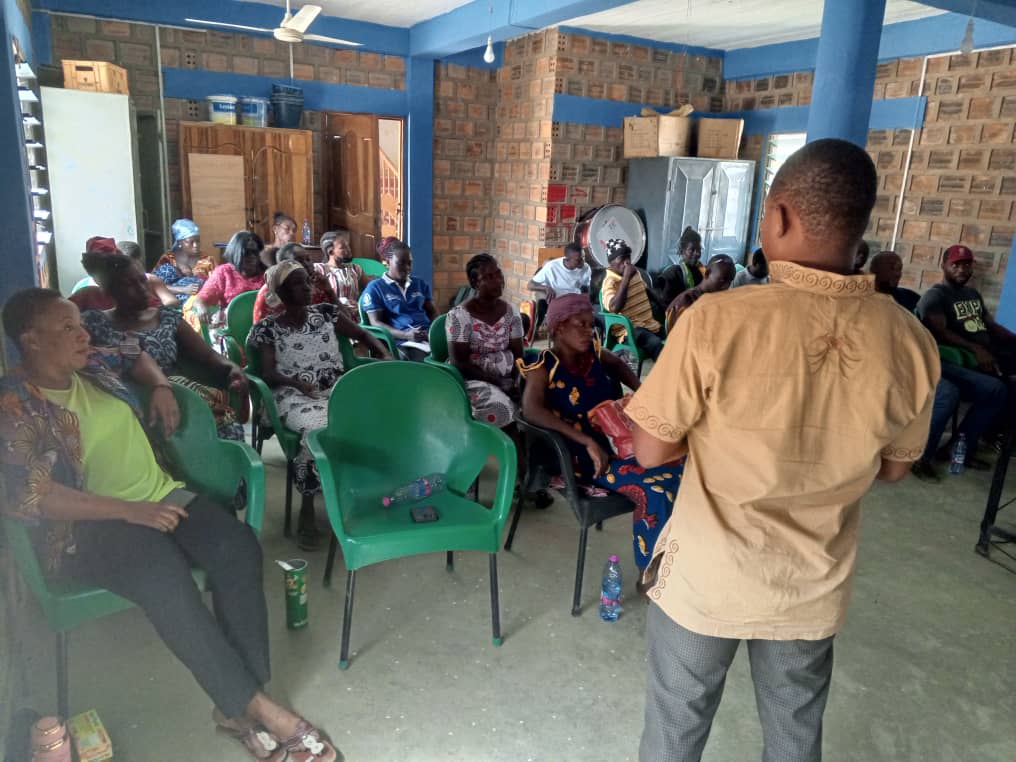
By Fiifi NETTEY
There is a popular saying: “Charity begins at home; the family is the first classroom of empathy, discipline and respect. The values we internalise there shape how we treat the wider world.” We are an integrated society where discipline is not enforced only by one’s family member but also by elders within the community. They correct us in various ways to ensure that society maintains a certain level of discipline.
B.F. Skinner (1938) and Ivan Pavlov (1903), renowned psychologists who contributed significantly to the study of behavioural discipline, explained that discipline shapes behaviour through reinforcement and punishment.
They emphasised that applying appropriate corrective measures enables individuals to adjust their actions and develop positive habits. Without such discipline, negative behaviour tends to escalate over time, ultimately threatening the stability and harmony of society.
In recent times, our societies seem to be drowning in a high level of impunity, which has escalated indiscipline among the youth. The situation is so alarming that one cannot help but wonder: why are we really doing this to ourselves as a country? How did we get here?
What went wrong with our home training? It is strange, especially because every individual belongs to a family; and home is where the first foundation of discipline is supposed to be laid.
In a typical Ghanaian society in the past, you could never dare disrespect an elderly person or anyone older than you. We are taught to always show maximum respect, to listen quietly when elders speak whether their words were pleasant or harsh — and to accept their counsel with gratitude before moving on. Respect was not optional; it was a core value of family bond, and l know it is to a lot of families.
In our societal and cultural system, we are closely integrated that the elderly are often regarded as always being right, regardless of the circumstances. Moreover, every elder possessed the moral authority and responsibility to correct or discipline any misbehaving child, even if the child was not their own. It was a collective effort to ensure that children grew up with the right values.
Things have changed so drastically that I think, as a country, we are retrogressing in the area of indiscipline. Impunity and indiscipline have deeply infiltrated our system, largely because of the growing disregard for our traditional and cultural values. Some parents who were themselves raised under strict discipline now claim that correcting children physically is wrong. They argue that children should only be spoken to. Ironically, these same parents are products of the very discipline they now condemn.
I witnessed a young man hurling insults at an elderly man, while everyone around simply looked on. Surprised, I asked why nobody was stepping in since it was clearly inappropriate. The response I got was even more shocking “The old man insulted him first, so it’s normal.” I couldn’t make sense of it, so I walked away. Yet, the scene kept replaying in my mind. It made me pause and reflect: What is our society becoming? How did we get to a point where disrespect, especially toward the elderly, is seen as acceptable?
Sadly, many people now consider such behaviour normal. In some cases, it is even the actions of certain elderly individuals themselves that encourage younger people to disrespect other adults. Worse still, society has become so litigious that you cannot even discipline another person’s child without risking police intervention or some force of abusive from their parents or family.
A teacher friend who preferred to remain anonymous lamented that children today have become increasingly stubborn and disrespectful. “But who are you to correct a child?” he asked. “The next moment, you risk being attacked by the parents; some even go as far as hiring people to beat you up. Don’t you see it all over social media and in the news?” He added that some parents dismiss concerns when told their wards are undisciplined, often responding: “It’s normal for children; they’ll change as they grow.” Because of this attitude, he said, he has learned to be extra cautious in the classroom.
Kwame, a parent, cited the galamsey menace as a troubling example of moral decline. “The way our environment is being destroyed by these men speaks volumes,” he said. “The level of impunity they display says it all.” He explained that the illegal miners’ blatant disregard for traditional authority and community values shows a lack of proper upbringing. “This is what we have become as a people. Why are we doing this to ourselves? These individuals come from homes and have parents,” he lamented.
Nico added that common sense alone should make those engaged in galamsey understand that their actions and inactions harm the entire nation. “If they had been properly raised within strong family systems, they wouldn’t be degrading the environment like this,” he said. “The audacity to film their activities and boldly post them online shows how far we’ve fallen as a society; one where many lack proper home training.”
Yaw, a taxi driver, recounted how he once saw a fellow driver recklessly driving against oncoming traffic. He also expressed concern about pedestrians who walk carelessly on the road and the dangerous manner in which okada riders handle their motorbikes. When he confronted some of them about their behaviour, they boldly asked whether he was a police officer and told him to mind his own business. “They see nothing wrong with their actions,” Yaw said. “But they don’t realise the harm their reckless attitude could cause if the unexpected happens.”
He further added that many people carelessly litter their surroundings, with some even carrying waste from their homes to dump into drains when it rains or leaving it by the roadside. When confronted, they boldly respond: “Is it your business? Are you in charge?” He lamented that such attitudes only worsen the problem, as these practices block drains, cause flooding and ultimately harm the entire community.
Charles recounted an incident where he once saw two teenagers in a compromising situation. When he confronted them, they boldly replied, asking if he was their parent to question their actions. Shocked by their response, he simply walked away. “These days, you might see teenagers drinking alcohol or using drugs, but you hesitate to confront them,” he said, “because you fear the possible backlash that could follow.”
Kwame, on his part, said he blames the breakdown of the family system. According to him, many parents are overly focused on making money and leave the responsibility of child discipline to teachers, nannies and house helps. They leave home very early and return late, leaving them disconnected from what their children are really up to. Sometimes, you see people openly using substances that are illegal and banned, yet they do so with impunity while the rest of us simply look on.
Linda, a parent, expressed concern about how young people openly promote hook-up services, especially on the Internet. She stressed that this is nothing short of prostitution, and there are laws against it. Yet, they carry it out with such impunity, as though it has become an accepted part of society. She added that the overwhelming availability of information is gradually making us view everything as normal—even when it is not.
Kukua wondered how a country can function when its youth attack the police for arresting one of their own, destroying property wealth millions of Ghana cedis in the process, and society treats it as normal. She cautioned us that we must be careful and do what is right. She added that it is worrying how some even attack men in uniform, yet people defend such actions as if nothing is wrong.
If charity truly begins at home, then discipline — the very foundation of respect, order and morality — must also begin there. Without it, we risk raising generations who see nothing wrong with indiscipline, ultimately paving the way for a chaotic and fragmented society. I believe that we need to go back to our old ways of discipline make sure families embedded natural discipline methods into their children to ensure respect for everybody wherever the find themselves in society.
The post Rising impunity is destroying society appeared first on The Business & Financial Times.
Read Full Story
























Facebook
Twitter
Pinterest
Instagram
Google+
YouTube
LinkedIn
RSS